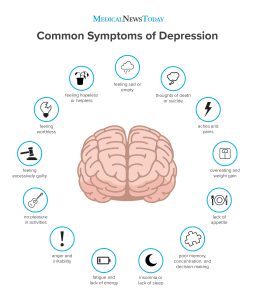Have you ever noticed that some people are able to effortlessly remember even the most mundane details and quickly comprehend new things? Well, learning how to improve memory isn’t as difficult as you might think.
To unlock the full potential of your brain, you need to keep it active and acute. Wasting time on your couch watching mindless television shows or scrolling through social media is not going to help.
Besides getting out flashcards, what can you do to help remember things better and learn new things more quickly? Check out these 10 effective strategies on how to improve your memory.
1. Get Your Body Moving
Physical activities don’t just exercise the body, but it also helps to exercise your brain. Obesity and the myriad of diseases that eventually set in as a result of being overweight can cause serious harm to the brain, so when learning how to improve your memory, exercise (especially aerobic exercise) is king.
Furthermore, without regular exercise, plaque starts to build up in your arteries, and your blood vessels begin to lose the ability to regulate blood flow. Plaque buildup reduces the amount of oxygen and nutrients that your blood carries to your brain. When the nutrients don’t make it there, the brain’s ability to function is compromised.
Research has shown that exercising four hours after learning significantly improved memory retention. Researchers suggest that “appropriately timed physical exercise can improve long-term memory and highlight the potential of exercise as an intervention in educational and clinical settings.”
To improve memory, make sure you get moving every day. Even if it’s just a brisk walk, it’ll help you maintain and increase your mental acuity. Brisk walking, swimming, and dancing are all excellent activities.
2. Eliminate Stressors
Any risk factors that cause you major stress, like anger or anxiety, will, in time, begin to eat away the parts of your brain that are responsible for memory. Amongst the most brain-damaging stressors is depression, which is actually often misdiagnosed as a memory problem since one of its primary symptoms is the inability to concentrate.

One study assessed memory in 3999 veterans and found that “depressive symptoms (without anxiety) had an adverse effect on immediate recall of new information and the total amount (but not rate) of acquisition.”
If you can’t concentrate, then you might feel like you are constantly forgetting things. Depression increases the levels of cortisol in your bloodstream, which elevates the cortisol levels in the brain. Doctors have found that increased cortisol diminishes certain areas of the brain, especially the hippocampus, which is where short-term memories are stored.
Prolonged depression can thus destroy your brain’s ability to remember anything new. Seek professional help to combat your depression and any stressors causing it—your brain will thank you.
3. Get a Good Night’s Sleep
Getting a consistent 7 to 8 hours of sleep each night will help you in your task of learning how to improve memory. During sleep, the brain firms up memories of recently acquired information, especially during REM sleep.
Getting enough sleep will help you get through the full spectrum of nocturnal cycles that are essential to optimal brain and body functioning during the waking hours. On the contrary, sleep deprivation can put a huge dent in your ability to form memories.
Another helpful strategy is to take a nap during the day, especially after learning something new. This can also help you to retain those memories, as well as recharge your brain and keep it sharper longer. However, the length of your nap is also very important. In one study, scientists found that people who napped for 30-90 minutes experienced better word recall.
4. Feed Your Brain
Fifty to sixty percent of the brain’s overall weight is pure fat, which is used to insulate its billions of nerve cells. The better insulated a cell is, the faster it can send messages, and the quicker you can think.
This is precisely why parents are advised to feed their young children whole milk and to restrict dieting to improve memory. Their brains need fat to grow and work properly. Skimping on fats can be devastating, even to the adult brain.
Thus, eating foods that contain a healthy mix of fats is vital for long-term memory. Some excellent food choices include fish (especially anchovies, mackerel, and wild salmon) and dark, leafy green vegetables.
Deep-fried foods obviously contain fat, but their lack of nutritional value is not going to help your brain or your body, so think healthy foods and fats first.
5. Eat Breakfast (And Include an Egg)
According to Larry McCleary, M.D., author of The Brain Trust Program, an egg is the ideal breakfast. Eggs contain B vitamins, which play a role in helping nerve cells burn glucose, producing antioxidants that protect neurons against damage, and offering omega-3 fatty acids that keep nerve cells firing at optimal speed. If you want to learn how to improve memory, breakfast is incredibly important.
Other foods to add to your breakfast include fruits, vegetables, and lean proteins. Avoid trans fats and high-fructose corn syrup. Trans fats diminish the brain cells’ ability to communicate with each other, and studies showed that HFCS can actually damage the brain by promoting brain insulin resistance.
Having a healthy breakfast in the morning has been shown to improve performance throughout the day, so don’t skimp on this important meal!
























































